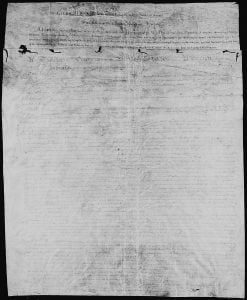Treaty of September 17, 1818
Articles of a treaty made and concluded, at St. Mary’s, in the state of Ohio, between Lewis Cass and Duncan McArthur, commissioners of the United States, with full power and authority to hold conferences, and conclude and sign a treaty or treaties, with all or any of the tribes or nations of Indians within the boundaries of the state of Ohio, of and concerning all matters interesting to the United States and the said nations of Indians, and the sachems, chiefs, and warriors, of the Wyandot, Seneca, Shawnese, and Ottawas, tribes of Indians; being supplementary to the treaty made and … Read more

